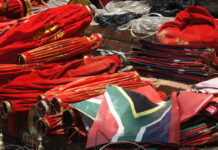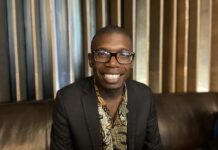
We asked UNICEF Youth Champion and pop star, Toya Delazy, why it is important for her to join the conversation about HIV and Aids. “I don’t think I have to be infected with HIV in order to create awareness, especially having such a large platform and having such a large influence amongst the youth, I think it’s important for people like myself to help destigmatise HIV.”
By MOSIBUDI RATLEBJANE.
What is your personal experience with HIV?
I lost my uncle and aunt in the same year back in 2003. Back then, people rarely spoke about HIV and Aids. It was the worst thing ever, to see my uncle just disappear like that and not knowing how to help him. It can be a very destructive disease, especially if it’s not taken care of. I think it’s better to have conversations and talk about it, rather than not saying anything and people die.
The disease left my cousin orphaned. He was eight years old when we lost my aunt and it’s quite sad to see a young man growing up without a mom.
There were moments when he would also be stigmatised. So, at that young age, I had to educate myself about how people become infected and try to get as much information as possible. Now that I’m older I have a platform, and working with UNICEF, I can use that to address issues, and misconceptions regarding HIV/Aids and especially among young people.
What views do you think young people have about HIV?
When I was in high school, sex was such a taboo thing. I went to a highly religious school, that would blur pictures of genitals in the textbooks, which, now when I think about it, is the strangest thing about our culture. Sex is kept as a taboo and secret thing, but should be spoken about freely.
I think the shame that is associated with sex, and subsequently HIV, causes people to feel judged, which makes young people, especially young girls, afraid to talk about sex. Young people, or girls, believe that if you talk about sex or HIV, it means you are sexually active and young women fear being slut-shamed.
Young people think they’ll never get infected. I know some people in my circles who would say: “Oh no, the condom burst, but we carried on anyway.” If you don’t know your partner’s status, this is a dangerous thing to do, because it just takes a moment in the sheets, and you could get infected.
What do you think about inter-generational/transactional relationships?
The thing is, your body and sexuality are yours, and you can use it the way you want, but I think education about your body and sexuality is very important. It’s like your car but you don’t know how to use it yourself, so educating yourself about your desire and your body is an important aspect that young women, particularly, need to learn.
When I was in university it was a crazy time, especially if you’re a girl like me, coming from the countryside and you’re still finding yourself, and perhaps not getting enough support from home. It’s easy to find yourself struggling with no cash and if someone comes to you, offering you comfort, it’s a hard decision to make. I was lucky not be in a transactional relationship myself, but I think girls and young women should protect themselves, by taking the initiative about sexual health. There are female condoms out there, you use the condom and protect yourself.
I believe that young people need to reclaim their bodies for themselves, because maybe that “sugar daddy” or guy can afford medical aid and you’re stuck there in shame, not knowing what to do. I don’t think in 2018, you have to be ashamed about your body, sex or your HIV status. We do need to educate ourselves.
I know it’s easier said than done, and there’s a whole lot more educating and work to be done to dismantle the violent and unhealthy belief systems we have. But I think the first thing is protection. Protecting yourself is an act of self-love. If you love yourself, you must actually protect yourself. Because what may happen afterwards, is actually devastating for everyone and affects the generations to come.
How do you use your brand to influence young people?
I have 450,000 followers on Facebook, and I posted a question the other day, asking:
“Fam, If you are living with #HIV, what do you want people to stop saying to you? And what would you rather they say?”
Unfortunately, it’s still a difficult conversation to have, because people haven’t really responded, I can tell there are people who don’t want others to know about their status, others simply don’t want to talk about HIV. Since living in London, what I’ve noticed is that people here talk about HIV freely. You find people use their HIV positive status to empower one another and use their status like a badge of honour. So, I’m trying to bring out the same energy back at home, because the African continent is the most affected by this virus.
In the year 2030, Africa will be responsible for half the youth in the world. We need to keep each other safe and encourage each other to talk about it. This is why, just by my association with UNICEF, and using my art, I want to encourage young girls, especially, to get tested, and I will also be testing publicly, which is a scary thing, but it’s important to do it.
UNICEF launched the global statistical update on HIV/AIDS in Johannesburg. Watch the event on UNICEF Africa’s Facebook page.
Mosibudi Ratlebjane is a writer based in Johannesburg.








